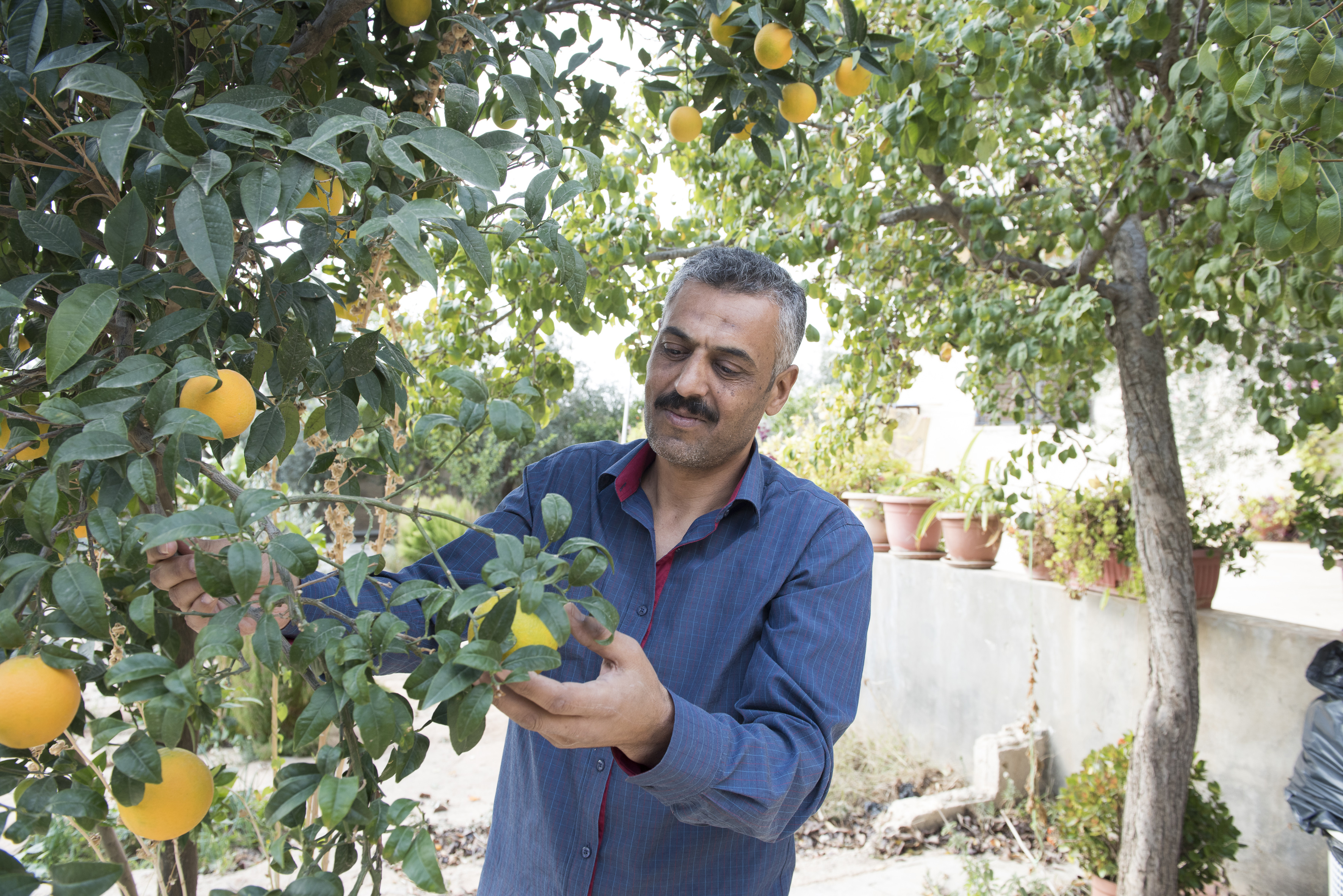Akram
the Father
Akram Suleiman, 48, tends to his garden in Jordan. Akram and his family fled to Jordan from Syria in 2013. He worries about keeping his family warm during the winter. Credit: ©UNHCR/Hannah Maule-ffinch
Six years ago, Akram’s farm was famous for its crops, particularly okra and olives. He was a well-respected farmer in Daraa, one of the centres of agriculture in Syria.
Today, he’s in Jordan; the house where he lived with his wife and seven children, looted and burned.
“We fled Syria because of war and unrest,” Akram explains. “Things went from bad to worse because of the terror. I chose to leave to protect my family.”
Akram and his family fled until they reached Za’atari refugee camp. They spent a week there before moving to the Irbid area, where they have lived ever since.
For three years, Akram and his family looked for a suitable and affordable place to live, which wasn’t easy on their limited income. But in 2016, Akram found an apartment that reminded him of what he left behind. There was a small yard filled with plants and crops: tomatoes, oranges, olives and kumquats, just to name a few.
But the apartment is still far from ideal.
“Our apartment is nice and quiet, but we suffer when the weather is cold,” he explains. “It’s really affected my family’s health, particularly my son’s asthma.”
Due to his uncertain job prospects, Akram’s family struggles to pay their monthly utility bills. It’s a challenge to balance essentials like food and health care with the high costs of energy expenses. They use gas cylinders and heat water on their stove to save on electrical costs.
For refugees like Akram, high energy bills and unreliable systems hinder self-sufficiency and dreams of a better life. But Akram cultivates hopes for his family’s future.
“I hope my children finish their education and are independent,” he says. “I hope we all have good and peaceful lives again.”




